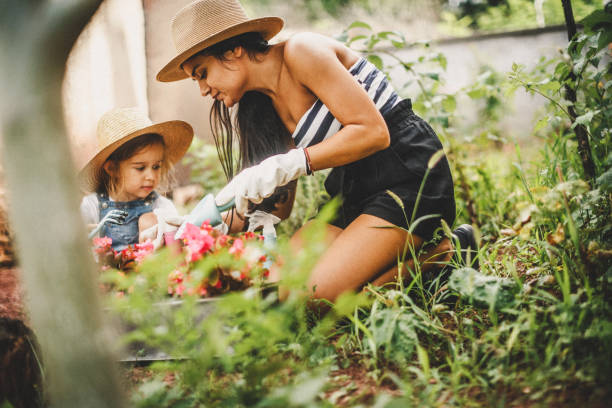In today’s world, where climate change and environmental degradation pose significant threats, the role of sustainable parenting in shaping the mindset and behavior of future generations has never been more crucial. By nurturing eco-consciousness in children, parents not only contribute to the well-being of the planet but also equip their offspring with essential skills and values for a sustainable future.
What is Sustainable Parenting?
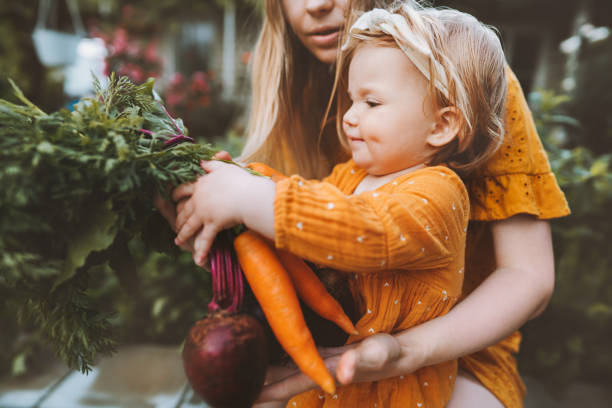
Sustainable parenting involves making choices that reduce your family’s ecological footprint and promote a healthier, more sustainable future for your children and future generations. In sustainable parenting, you must make eco-friendly choices that reduce your family’s carbon footprint and ensure a more sustainable and healthier future for your kids.
The best way to teach children about respecting and protecting the planet is to model eco-friendly behavior ourselves. Kids are like sponges, as they say! As they watch and hear everything, they absorb it all. For instance, to make them aware of the importance of environmentally friendly products, stock their nursery with sustainable diapers and wipes.
Why Sustainable Parenting Matters
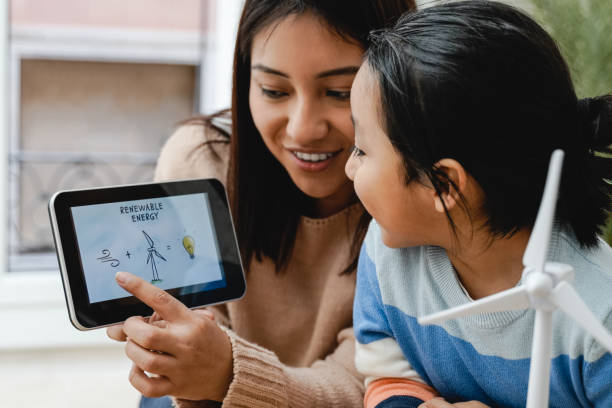
With nearly 29 million tonnes of plastic entering the ocean each year by 2040, global consciousness is turning toward the problem of plastic pollution. We buy our children a wide range of products that use unsustainable materials and methods – from bottles that shed millions of microplastic particles, to disposable wipes and nappies that never degrade – even though numerous initiatives have been launched to curb the use of plastic straws, bags, and bottles.
According to the UNEP, the toy industry uses the most plastic in the world; millions of toys are thrown away each year after barely being used. Many people are unaware of the huge environmental impact of formulas. Formulas are largely made of powdered cow’s milk, requiring as much as 4,700 liters (1034 gallons) of water to make just one kilogram (35 ounces). After infants and young children are fed infant formula, 11 to 14 kg of greenhouse gases (388 to 494oz) are released into the atmosphere.
For sustainable parenting to be possible, you must also consider the amount of nappies your baby consumes. In the UK for example, three billion nappies are thrown away each year, accounting for 2% to 3% of all home waste – a major contributor to global plastic pollution. Approximately 300,000 nappies are discarded every minute around the world. A $71 billion (£61 billion) industry feeds the problem in the US, where the problem is magnified. Since nappies are usually made of polyethylene waterproof layers and polypropylene inner layers, they tend to remain in landfills for 500 years or longer after being discarded.
These numbers show the environmental impact of unsustainable parenting practices and show the urgent need for a shift towards sustainable parenting. The staggering amount of plastic pollution entering our oceans annually, coupled with the extensive waste generated by disposable products like nappies, wipes, and toys, emphasizes the critical role parents play in shaping a more sustainable future.
Qualities of Sustainable Parenting at Home

Eco-friendly homes are quite simple to build through sustainable parenting practices. It is possible to lower your carbon footprint and keep your children’s environment more earth-friendly through little actions, such as:
- Eliminating single-use plastics such as straws to become a zero-waste household. Rather than throwing away food scraps, you can compost them.
- Reducing, reusing, and recycling are the next steps. You should regularly purge your possessions, resist impulse buys, and recycle items you don’t need to throw away.
- Be aware of how much energy and resources you consume. Make sure you don’t leave the lights on for too long during showers or baths. As a result, you will be able to reduce your monthly bills as well.
Using these measures in everyday life will make sustainable parenting a breeze.
Practical Tips on Sustainable Parenting
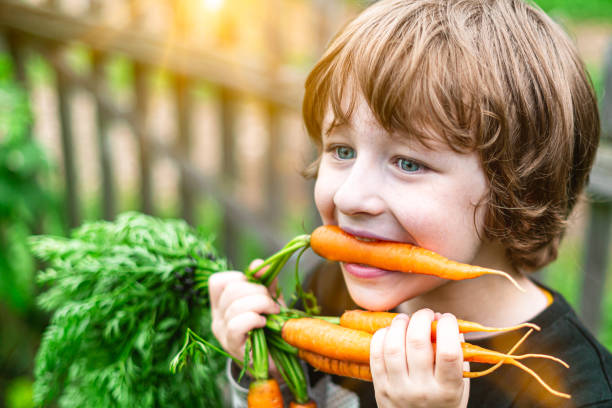
1. Create a Sustainable Home Environment
- Reduce waste: By implementing recycling and composting systems at home, parents can teach children the importance of waste reduction and resource conservation. Additionally, reducing single-use plastics and opting for reusable alternatives helps instill eco-friendly habits from an early age.
- Conserve energy: Installing energy-efficient appliances and practicing energy-saving habits not only reduces carbon emissions but also lowers utility bills. By involving children in energy conservation efforts, parents can instill a sense of responsibility toward environmental protection.
- Promote water conservation: Parents can lead by example by fixing leaks, using water-saving devices, and encouraging mindful water usage in their households. Teaching children the importance of water conservation through practical actions reinforces the value of environmental stewardship.
2. Encourage Connection with Nature
- Spend time outside: This is fundamental to fostering a deep connection with nature in children. Whether it’s exploring local parks, hiking in nature reserves, or gardening in the backyard, outdoor activities provide opportunities for children to appreciate the beauty and diversity of the natural world.
- Teach environmental stewardship: This goes hand in hand with connecting children to nature. By discussing topics such as biodiversity and conservation, parents can instill a sense of responsibility for protecting the environment. Engaging children in conservation efforts, such as tree planting or beach cleanups, empowers them to make a positive impact on the world around them.
3. Foster Critical Thinking and Empathy
- Discuss environmental issues: Having an open and honest discussion with children is essential for fostering critical thinking skills. In sustainable parenting, parents can explain the impact of human activities on the planet and encourage children to question the status quo and think critically about their actions. Creating a safe space for open dialogue enables children to express their thoughts and concerns about environmental issues.
- Teach empathy: Cultivating empathy towards all living beings is a cornerstone of sustainable parenting. Teaching kindness and compassion towards animals and plants instills a deep respect for the interconnectedness of all life forms. By instilling empathy in children, parents nurture their capacity for compassion and empathy towards the natural world.
4. Support Eco-Friendly Education
- Choose sustainable schools: This plays a significant role in shaping children’s environmental values. Researching eco-friendly educational institutions ensures that children receive environmental education that aligns with their values. Participating in nature-based learning programs further enhances children’s connection to the environment and fosters a deeper understanding of ecological principles.
- Teach at home: Supplementing education at home is equally important for reinforcing eco-conscious values. Incorporating environmental themes into the homeschooling curriculum exposes children to a wide range of topics related to sustainability. Organizing eco-themed field trips and experiences provides hands-on learning opportunities that complement formal education.
5. Empower Children to Take Action
- Get them involved: Involving children in decision-making processes empowers them to take ownership of their environmental impact. In sustainable parenting, you must allow children to participate in household eco-initiatives to foster a sense of responsibility. Encouraging children to come up with their ideas for sustainability promotes creativity and innovation in finding eco-friendly solutions.
- Support their efforts: Supporting children’s advocacy efforts is essential for nurturing their passion for environmental activism. Assisting with eco-friendly projects and initiatives gives kids practical support and resources to make a difference. Amplifying children’s voices in environmental advocacy ensures that their concerns and ideas are heard and respected.
Getting Started with Sustainable Parenting
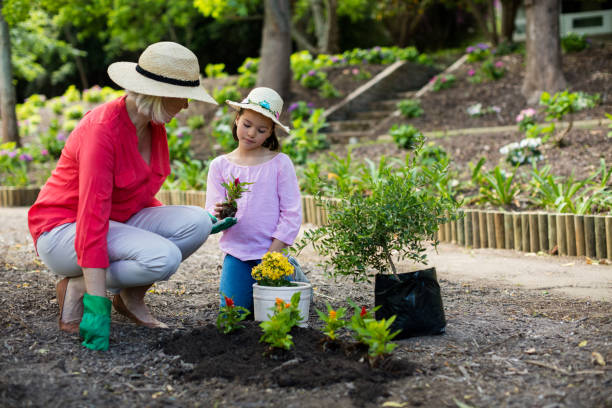
Educating yourself as a parent is the first step towards fostering eco-consciousness in your children. This involves delving into research on environmental issues, ranging from climate change and pollution to biodiversity loss.
Leading by example is equally vital in instilling eco-conscious values in children. As parents, incorporating eco-friendly habits into our daily lives sends a powerful message to our children. Simple actions such as reducing waste, conserving energy, and practicing conscious consumerism demonstrate our commitment to environmental stewardship.
Conclusion
Sustainable parenting is a multifaceted approach to raising environmentally-aware children. By making conscious choices about the products we use for our children, advocating for eco-friendly alternatives, and supporting initiatives aimed at reducing plastic waste and greenhouse gas emissions, parents can contribute significantly to preserving the planet for generations to come.
Sustainable parenting is not just about individual actions; it’s about collective responsibility and making choices that prioritize environmental health and sustainability. Together, we can make a meaningful difference in combating plastic pollution and building a more sustainable world for our children.
Frequently Asked Questions (FAQs)
Why is sustainable parenting important?
Sustainable parenting is vital for equipping children with the knowledge, skills, and values needed to address environmental challenges and ensure a sustainable future.
How can parents incorporate sustainable parenting into their daily lives?
Parents can integrate sustainable parenting practices by reducing waste, conserving energy and water, minimizing single-use plastics, and choosing eco-friendly products.
How can sustainable parenting benefit children?
Sustainable parenting fosters responsibility, critical thinking, and empathy in children, helping them understand the importance of sustainable living and their role in preserving the environment.
What are some practical tips for practicing sustainable parenting? Practical tips include educating children about environmental issues, leading by example, creating a sustainable home environment, promoting a connection with nature, and supporting children’s advocacy efforts for positive change.

